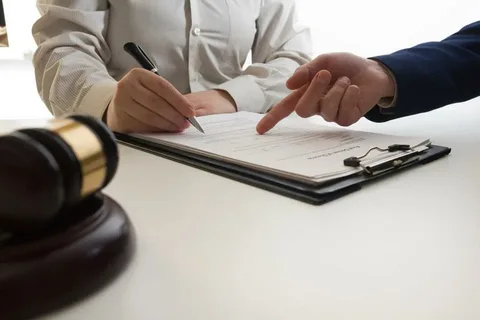A Property Power of Attorney (POA) is a legal instrument that permits one person to delegate another individual to represent him/her in all issues of property. The creation of a POA for property management can be beneficial if it’s about real estate management, buying and selling properties, or property investment. This article presents an in-depth analysis of what a property POA is, how it is used and its benefits for both parties.
1. What is property power of attorney
Property Power of Attorney is a legal document giving an individual (the principal) the power to appoint someone else (the agent or attorney-in-fact) to deal with his assets on his behalf. This power may cover from minute stuff daily like rent collection, bill payments and property upkeep to major financial decisions concerning real estate deals. The scope of powers given to the agent can be customize according to the specific requirements and wishes of the principal. Thus rental management, real estate investment management, and execution of property sales are all responsibilities that flow through the agent on behalf of the principal by authority bestowed upon him/her by the property POA. The present agreement allows the principals to remain flexible and avoid any hassles of managing their property on a first-hand basis. At the same time, it serves as a representation of their interests by some truste agents who will make sure that they are well protecte.
2. Kinds of property POA
There are diverse types of property POAs that cater for different needs and circumstances. For instance, a general POA for property gives broad authority to an agent to manage all aspects of the principal’s affairs concerning his or her property. This type of POA is comprehensive, giving an agent the ability to decide on behalf of a principal about many things that relate to his or her properties. On the flip side, limited or specific POAs may limit the powers of agents to particular actions within certain specified time frames. A case in point is when a principal empowers an agent with such privileges as selling a particular asset, handling rental cash flow from one specific piece or addressing concerns about a specifically named real estate investment. This kind offers more control and hence can be used by principals in tailoring the jurisdiction assigned to agents depending on what they might require arising out of their unique desires. To choose what suits them best regarding these differences among these types of property powers of attorney principals should be aware and understand it which will lead them closer towards having their estate dealt with effectively according to how they want it.
3. The agent’s role
The agent appointe by a property POA is obliged to act in the best interests of the principal, and this means they should exercise prudence, and responsibility as well as their wishes and specifications liste in the POA document. The agents should keep proper books of records for their dealings with the principal and be open about these deals.
4. When is a property POA useful
Property POA can be especially important when the principal is incapacitate due to illness, disability or because they are not available. In such a case, having an honest agent who has been appointe through a property POA will help ensure that all major issues on the property have been take care of by someone competent thereby giving peace of mind. This also allows for continuity in property management where even where the principal cannot make decisions at specific times there are others who can do it on his behalf. In addition, property attorneys may employ this legislation to expedite legal procedures like real estate transactions involving sales or purchases in the absence or incompetence of principals. Therefore, instead of waiting for the convalescence or availability of their clients, lawyers call up the person who has been delegate to represent them in law during a transaction hence facilitating its quick conclusion while averting prospective delays or complications. Overall, property POA is an important instrument useful for making sure that a person’s assets are properly manage despite the unexpected developments that may make it impossible for the principal to handle these issues personally.
5. Drafting a property POA
Drafting a property POA calls for an in-depth analysis of several aspects such as the extent of authority stipulated, the agent involved and any specific instructions or limitations. Therefore, one should seek the services of an attorney who can ensure that the power of attorney documentation complies with applicable laws and accurately reflects what the principal wants. A qualified lawyer can also give directions concerning drawing up clauses which will clearly define an agent’s responsibilities and powers ensuring they are not in conflict with those of a principal’s interests. This therefore means that executants need to periodically review their powers of attorney as well as amend them when necessary so that they remain effective in situations where health challenges or personal preferences change over time. Proactive principals who manage their property affairs well and consult legal advice effectively come up with strong and dynamic property POAs tailored to suit their objectives.
6. Revocation and termination
The POA for property is not set in stone; it could be revoked or terminated in some circumstances. The principal can only revoke the POA if they are sane and able to make such decisions. This annulment usually necessitates a formal process like writing a revocation document, and then informing all the relevant parties involved. Furthermore, the POA may expire automatically in case of certain events, say the demise of the principal or agent, or achieving its purpose for which it was create. Both principals and agents need to know when a property POA can be invalidate or cancelle to comply with legal requirements and avoid any misunderstandings or disagreements. Also, the attorney should update their POA documents continually as situations change.
Conclusion
In conclusion, Property Power of Attorney is an effective tool that enables people to delegate property management powers thereby ensuring continuity in property matters. When used correctly, this kind of power over real estate investments will provide security to people who own them and those who deal with them on their behalf like agents. On the other hand, the property POA creation and implementation should be approache with vigilance and expertise so that it functions as intended.





